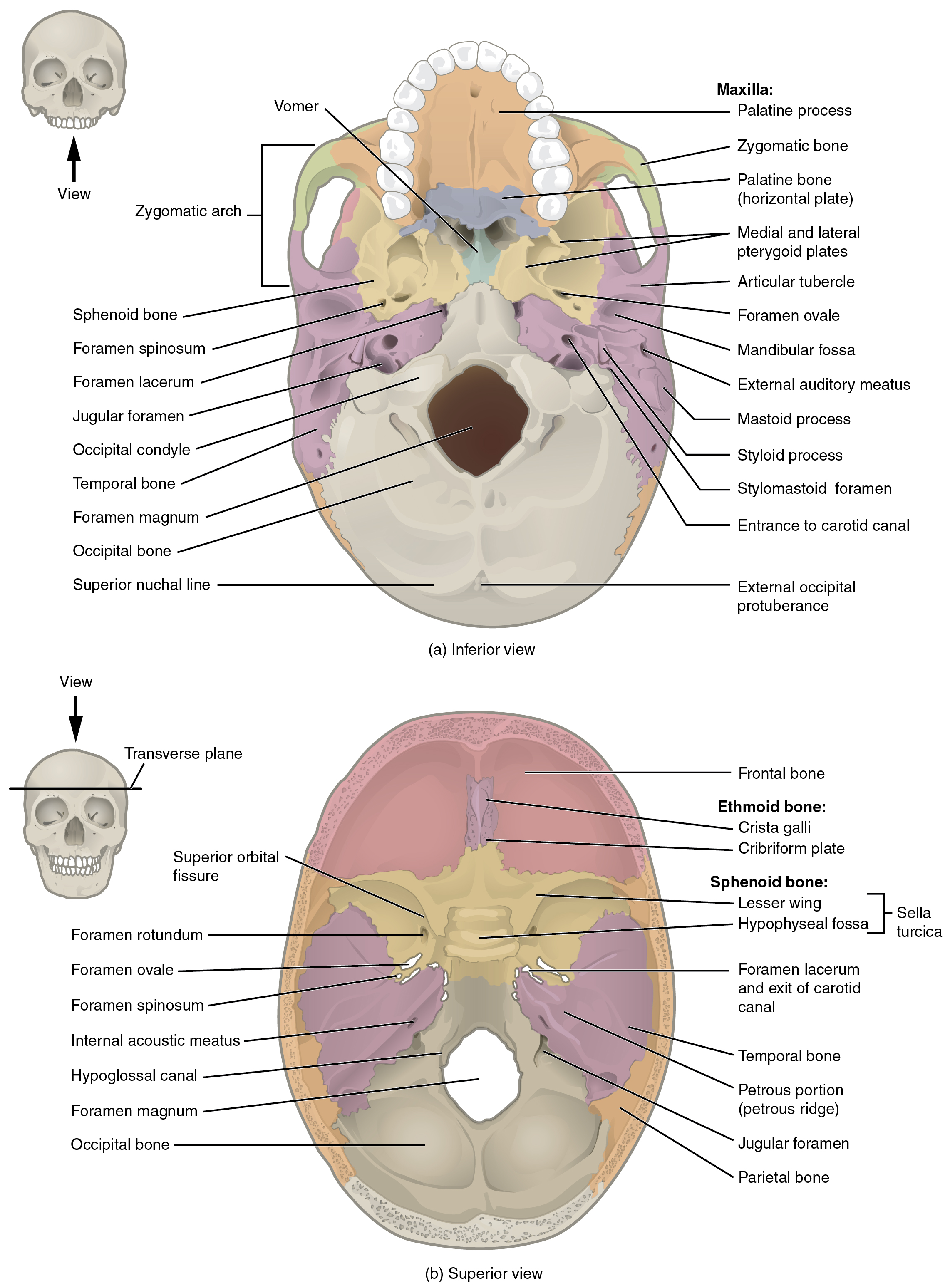Skull bones
1/18
There's no tags or description
Looks like no tags are added yet.
Name | Mastery | Learn | Test | Matching | Spaced |
|---|
No study sessions yet.
19 Terms
Movable Bones
Auditory ossicles and mandible
Sutures
Immovable joints fusing skull bones together
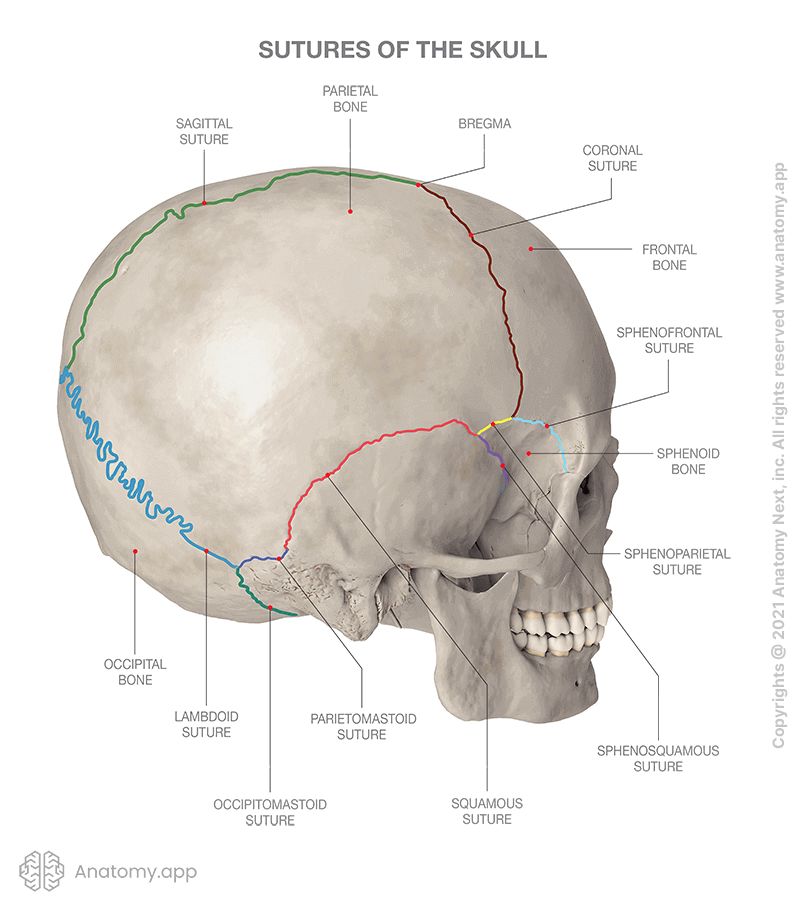
Frontal bone
Form forehead, roofs of orbits, most of anterior part of cranial floor
Parts:
Frontal Squama: Scalelike plate forming forehead
Supraorbital Margin: Thicker bone around orbits
Supraorbital foramen: hole medial to midpoint of supra orbit margin
Frontal sSinuses: Deep to frontal squama
Left and right united by metopic suture that disappears by 6-8 years
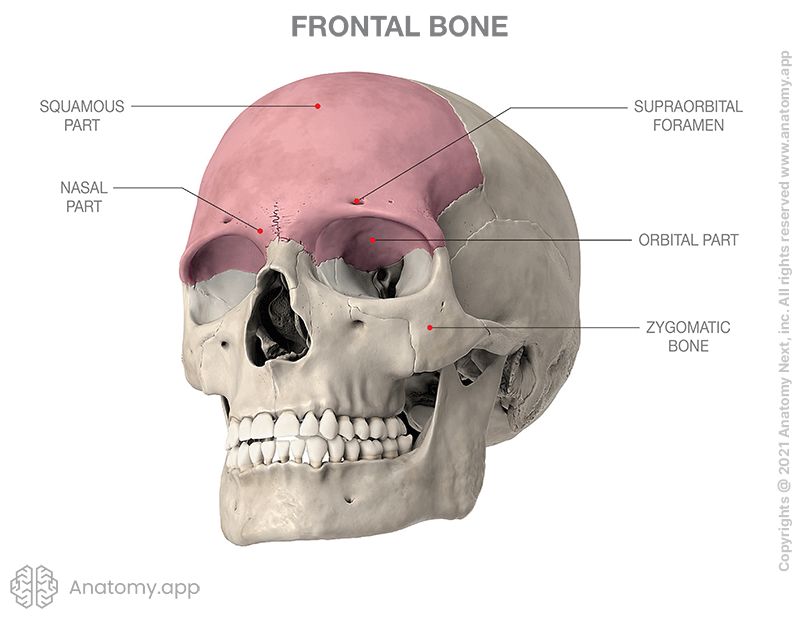
Two Parietal Bones
Form sides and roof of cranial cavity, internal surfaces of bones feature many protrusions and depressions for blood vessels supplying dura matter covering brain
Sagiital suture: Connect left and right parietal bones
Coronal Suture: Connect parietal bones and frontal bone
Lambdoid suture: connect parietal and occipital bones
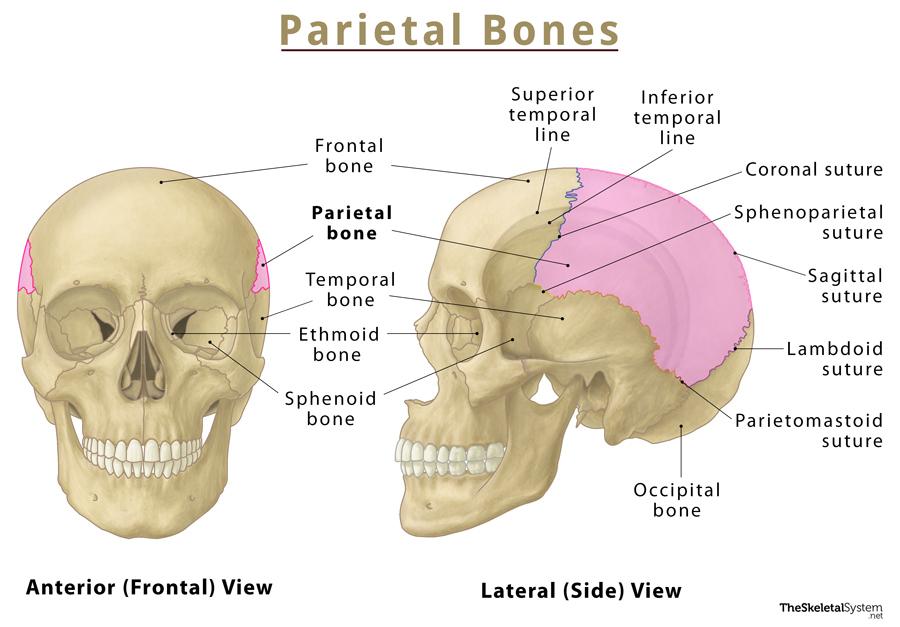
Two Temporal Bones
Form inferior lateral aspects of cranium and parts of cranial floor
Temporal Squama: Thin, flat part of the bone
Mastoid process: Posterior and inferior to ear
Mastoid process: Attachment for neck muscles
Internal auditory feature: for nerves
Petrous portion: Floor of cranium, houses internal and middle ear, carotid and jugular foramen
Zygomatic process: Forms zygomatic arch with temporal process of the zygomatic bone
Mandibular fossa: Articular tubercule to form joint with mandible
Styloid Process: Muscles and ligaments for tongue and cheek
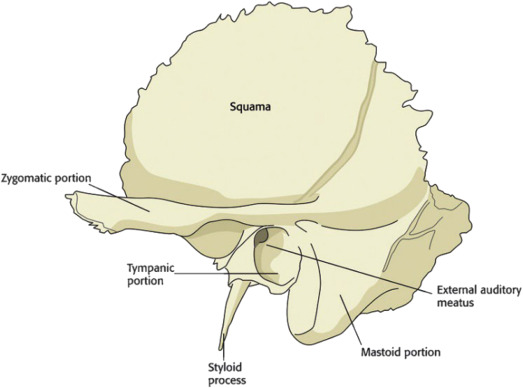
Occipital Bone
Forms Posterior part and base of cranium
Foramen Magnum: Passage for spinal cord, arteries
Occipital Condyles: Form joint with atlas
External occipital protuberance: For attachment of ligaments
Superior and inferior nuchal Lines: Muscle attachment
Cerebral and cerebellar fossae: Accommodation for brain
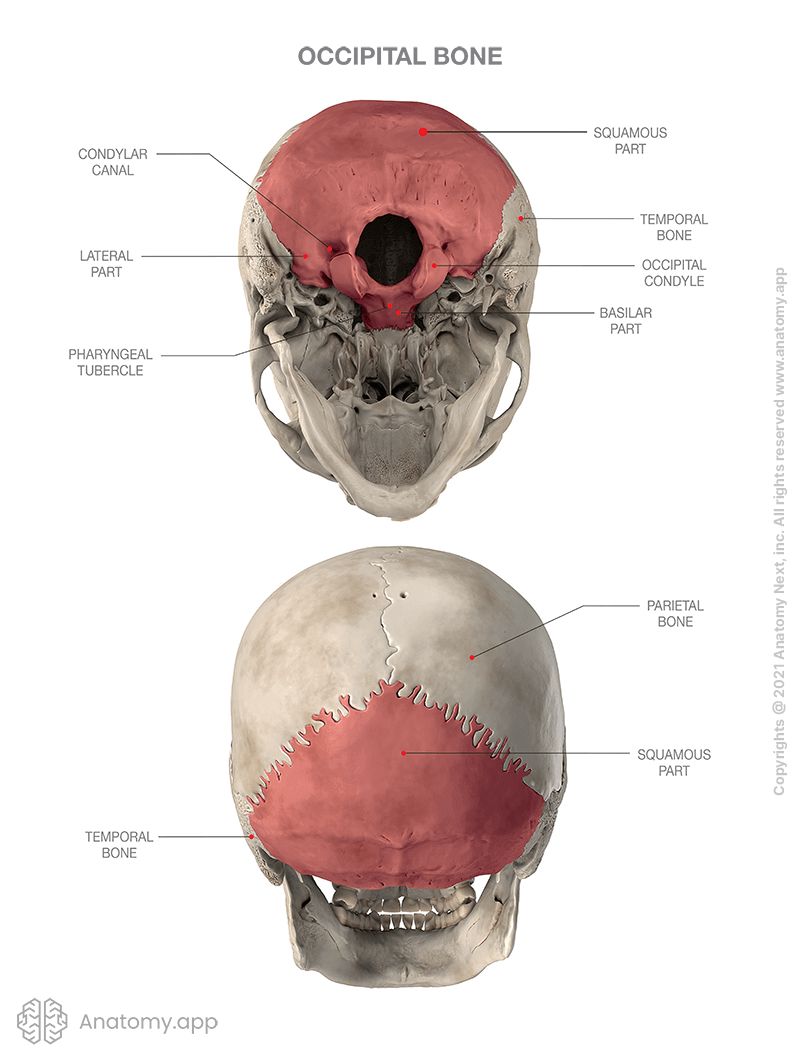
Sphenoid Bone
Middle part of skull base; cranial floor, posterior and slightly superior to nasal cavity, connects with frontal bone, temporal bones, occipital bone
Sphenoid sinus: Drains into nasal cavity
Sella Turcica: Houses pituitary gland
Greater wingsL Floor and walls of cranium
Lesser wings: part of floor and posterior part of orbit
Optic canal: For optic nerve and ophthalmic artery
Pterygoid Process: Muscle of mandible
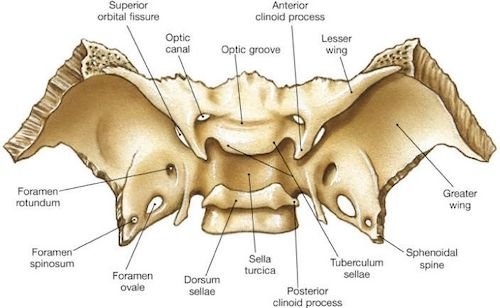
Ethmoid Bone
Anterior to sphenoid and posterior to nasal bones
Forms: Part of cranial floor, medial wall of orbits, superior part of nasal septum most of superior sidewalls of nasal cavity
Cribriform Plate: Roof of nasal cavity
Olfactory foramina: For olfactory nerves
Crista Galli: Attachment for membranes that separate brain hemispheres
Ethmoid Sinuses: Between nasal cavity and orbits
Nasal Conchae: Increase surface area covered by mucus membranes, warms, moisturizes, cleans air
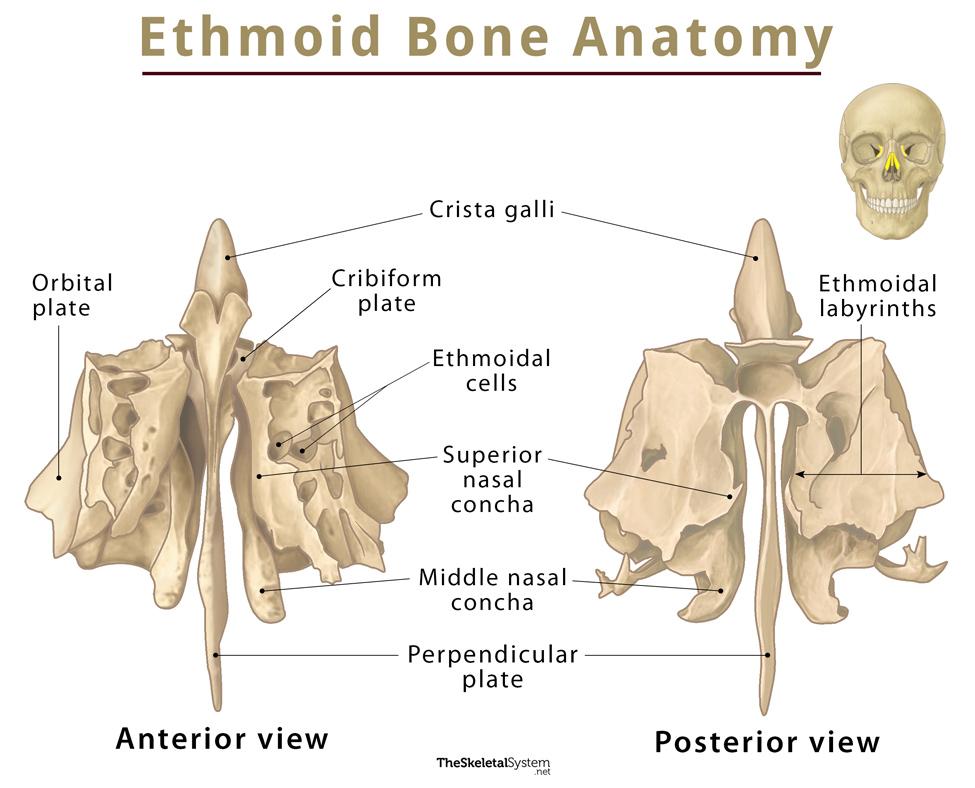
Two Nasal Bones
Form bridge of the nose
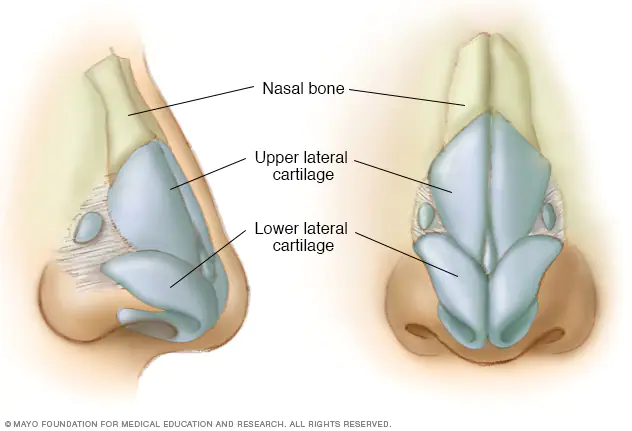
Two Maxillae
Form upperjaebone, form floor of orbits, lateral walls and floor of nasal cavity, most of hard palate
Maxillary Sinuses: Empties into nasal cavity
Alveolar processes: Contain alveoli for teeth
Palatine Processes: Form hard palate, fuse at 10-12 weeks of fetal development
Infraorbital forâmena: For infraorbital and trigeminal nerves and vessels
Incisive formen: Behind incisor teeth
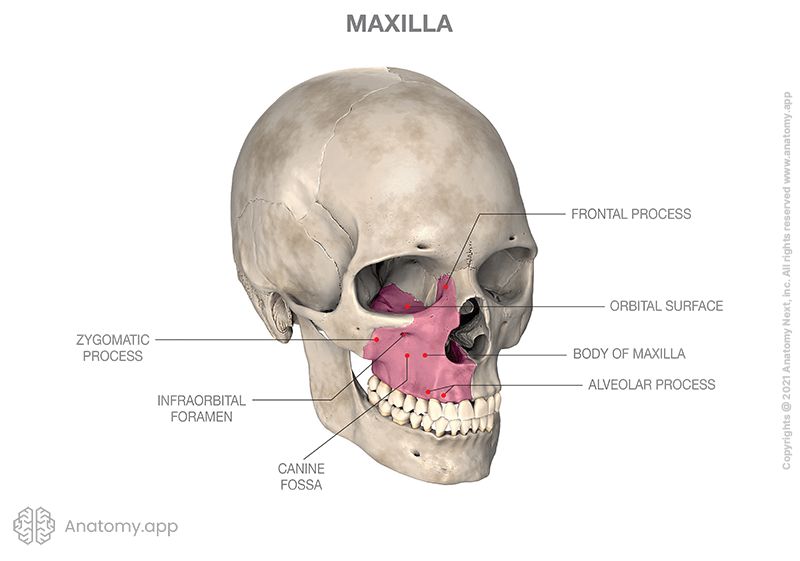
Two zygomatic bone
Cheekbones; form lateral walls and floors of orbits
Temporal process: Make zygomatic arch with zygomatic process of temporal bone
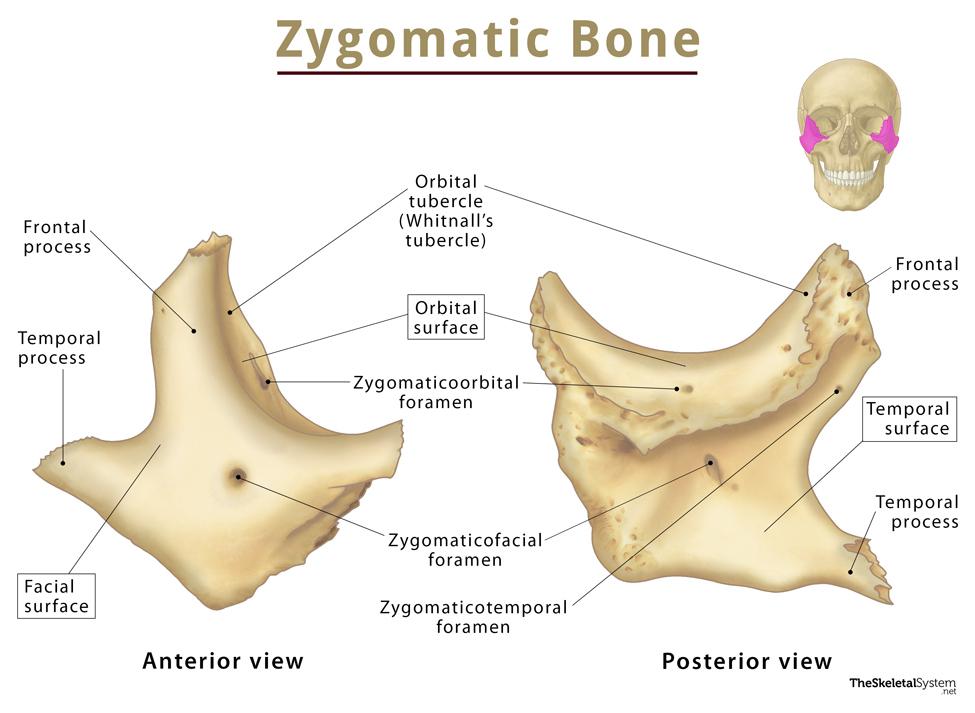
Two Lacrimal Bones
Posterior and lateral to nasal bones; form medial walls of orbits
Lacrimal fossa: Houses lacrimal sac for tears
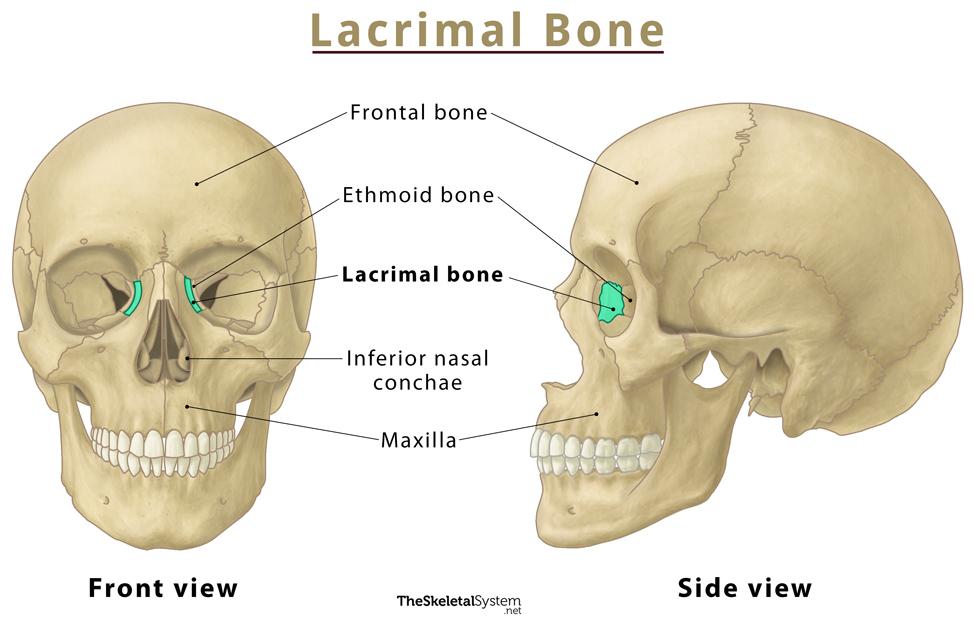
Two palatine bones
Form posterior part of hard palate, floor, and lateral walls of nasal cavity, floor of orbits
Horizontal Plate: Forms hard palate
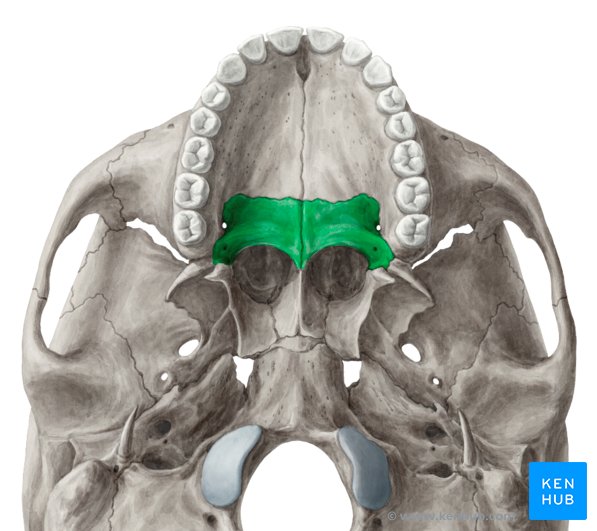
two inferior nasal conchae
Part of lateral parts of nasal cavity
Lined with mucosa; warm and filter air
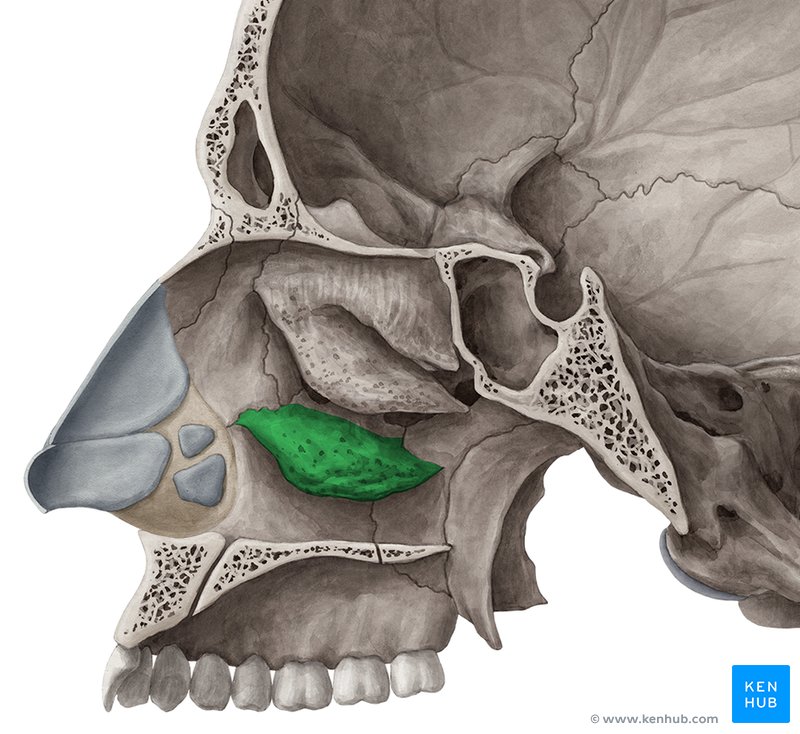
Vomer
Forms inferior portion of nasal septum
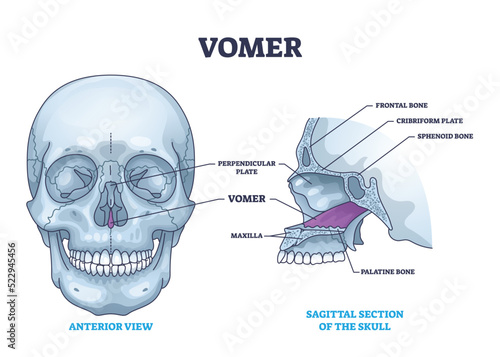
Mandible
Lower jawbone;movable
Body: Horizontal portion
Rami: Perpendicular portion
Angle: ramus meets body
Condylar process: Articulates with fossa and tubule of temporal bone
Coronoid Process: Attachment of muscles
Mental foramen: Inferior to second premolar; for mental nerve
Mandibular foramen: For alveolar nerves and vessels
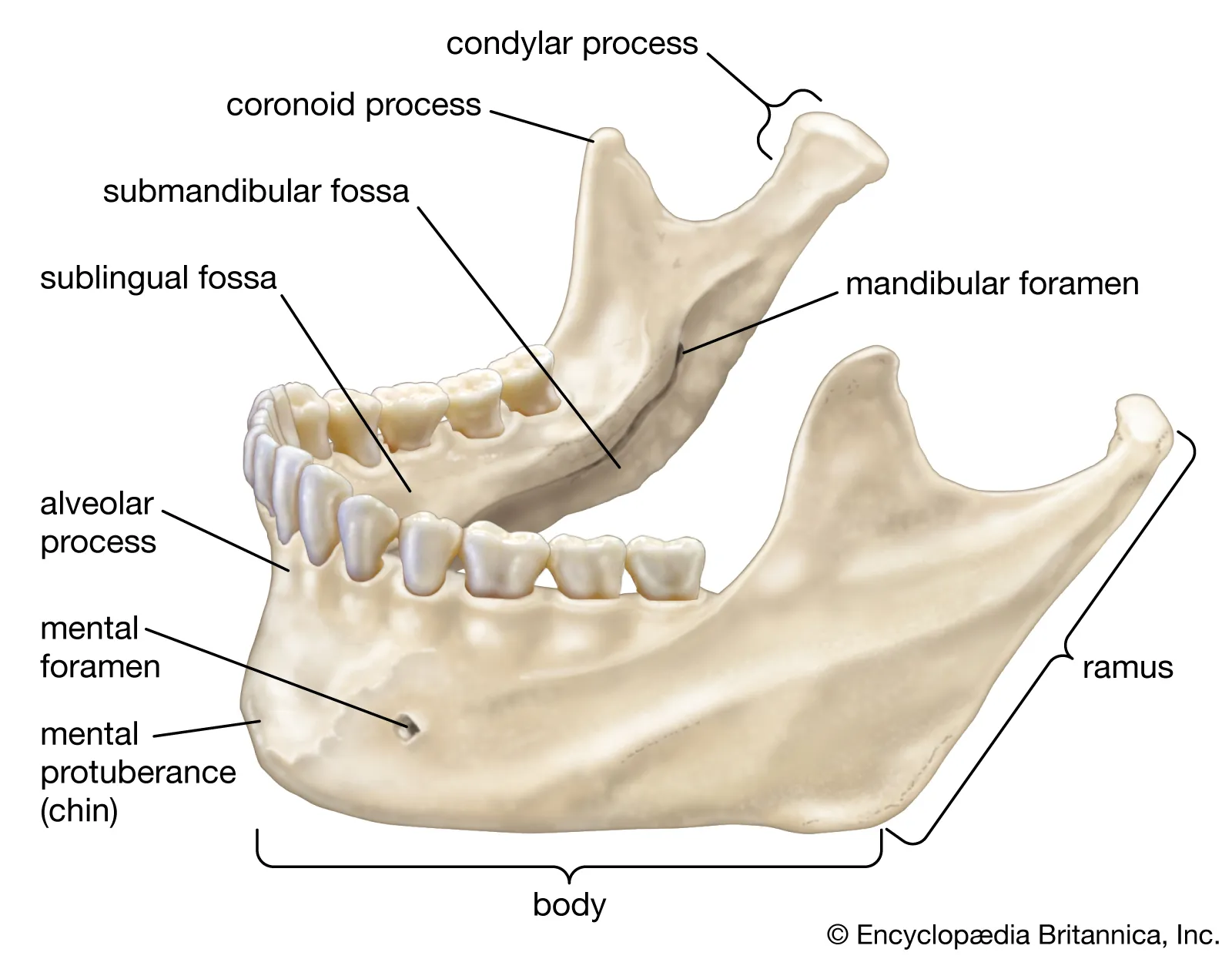
Lateral and Frontal View Of Skull
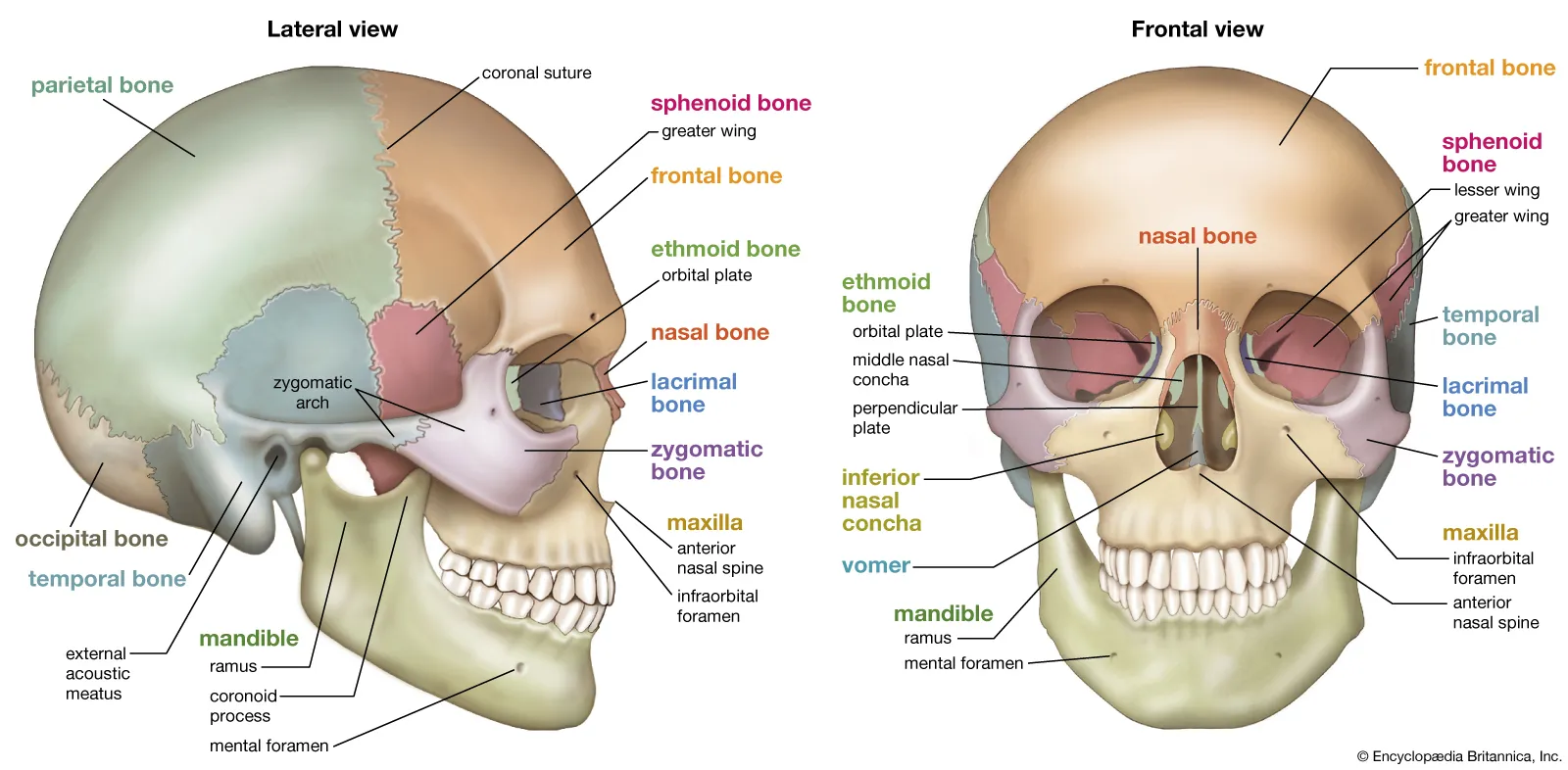
Superior and Inferior View Of Skull
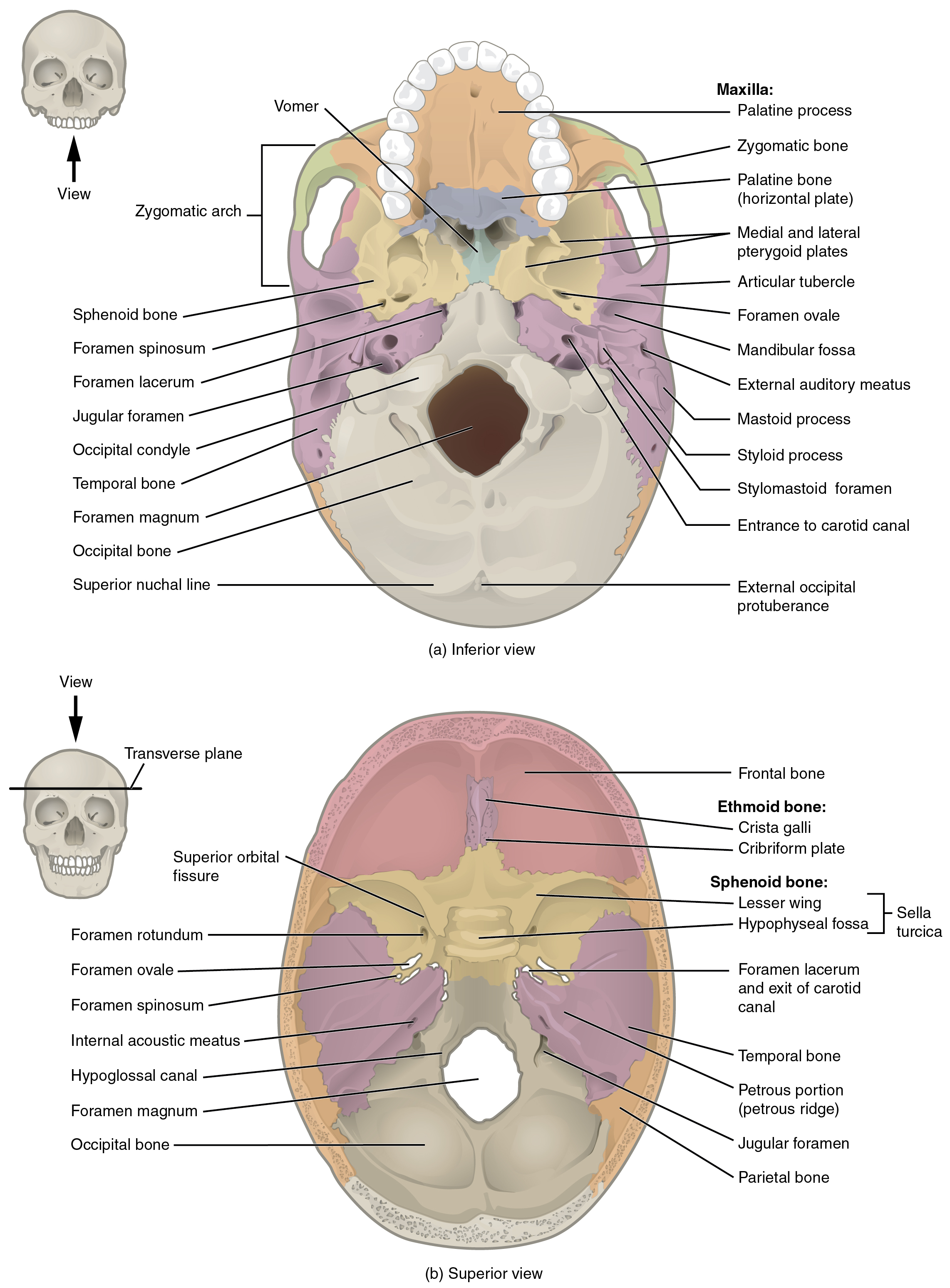
Posterior View Of Skull
